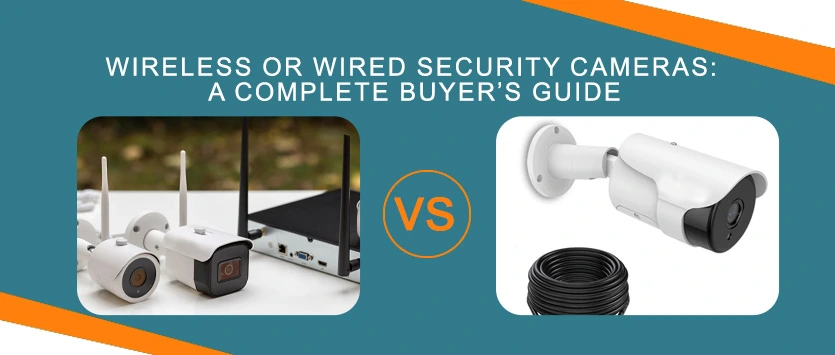Security cameras have become crucial for Home and business, imparting protection and peace of mind. When deciding on a protective digital camera, one main selection is whether to use wired or wireless options. Each type has its benefits and disadvantages, and the proper preference depends on your specific needs.
At AS ITSS, we specialize in imparting high-quality protection solutions, which include each stressed and wi-fi camera. This manual will help you make an informed decision by evaluating both options in detail.

Wired Security Cameras
What Are Wired Security Cameras?
Wireless safety cameras transmit pictures through Wi-Fi and keep recordings in the cloud or a local storage device. They are ideal for customers who decide on flexibility and easy installation.
Pros of Wired Security Cameras:
Stable Connection: Since they use bodily cables, there’s no danger of interference or signal drops.
High-Quality Video: Provides clear and uninterrupted footage.
No Battery Dependence: No want to worry approximately recharging or replacing batteries.
More Secure: Less vulnerable to hacking as compared to wi-fi cameras.
Cons of Wired Security Cameras:
Complex Installation: Requires running cables through walls or ceilings, making installation more challenging.
Limited Flexibility: Once installed, repositioning cameras can be difficult.
Power Dependency: If the power goes out, cameras may stop working unless backed up by a power source.
Wireless Security Cameras
What Are Wireless Security Cameras?
Wireless security cameras transmit footage via Wi-Fi and store recordings on the cloud or a local storage device. They are ideal for users who prefer flexibility and easy installation.
Pros of Wireless Security Cameras:
Easy Installation: No need for extensive wiring, making it ideal for renters and temporary setups.
Flexible Placement: Can be easily moved and adjusted.
Remote Access: Allows users to monitor footage from anywhere using a smartphone or computer.
Battery-Powered Options: Some models can work during power outages if equipped with rechargeable batteries.
Cons of Wireless Security Cameras:
Wi-Fi Dependent: Performance may be affected by network issues or interference.
Limited Battery Life: Requires regular charging or battery replacement (unless plugged into a power source).
Potential Hacking Risks: Wireless signals are more vulnerable to cyber threats if not properly secured.
Comparison Table: Wired vs. Wireless Security Cameras
| Feature | Wired Cameras | Wireless Cameras |
| Installation | Complex requires cables | Easy, minimal setup |
| Video Quality | High and stable | May fluctuate due to Wi-Fi |
| Power Source | Direct power supply | Battery or plug-in |
| Reliability | Highly reliable | Can be affected by network issues |
| Security | Less prone to hacking | Needs strong security measures |
| Flexibility | Limited movement | Easily adjustable |
Which One Should You Choose?
The choice between wired and wireless security cameras depends on your needs:
Choose wired security cameras if you need high-quality, uninterrupted video and are comfortable with permanent installation.
Choose wireless security cameras if you want easy installation, flexibility, and remote access. At AS ITSS, we offer a wide range of both wired and wireless security cameras to suit different security needs. Whether you’re securing a home, office, or commercial space, our expert team is here to help you find the best solution.
Get Expert Security Solutions with AS ITSS
Need help choosing the right security system? Contact AS ITSS today for expert advice and high-quality security camera solutions. Protect what matters most with the right security technology!

